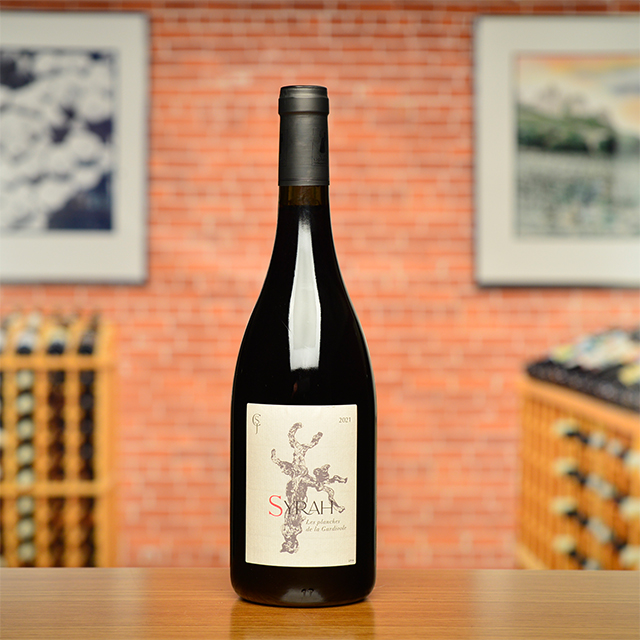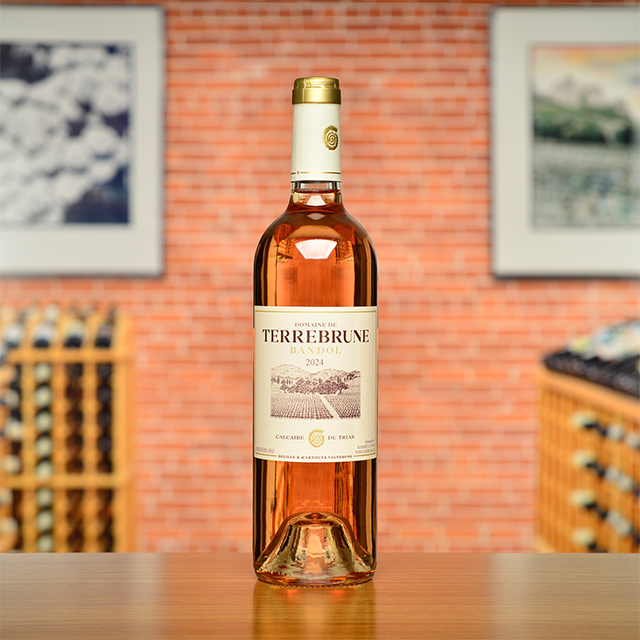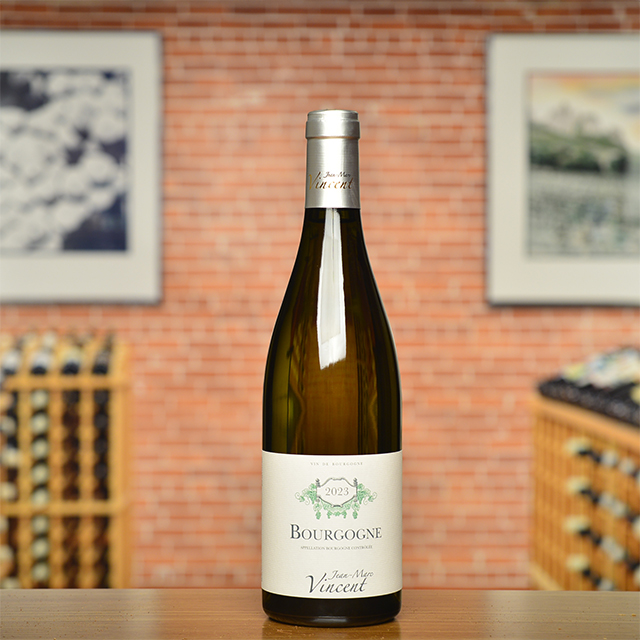Notify me
2018 Côtes de Provence Syrah
Clos Saint-Joseph
While the name of the domaine honors Roch’s great-grandfather, it also brings to mind the great northern Rhône appellation Saint-Joseph. The association with fine cool-climate Syrah is not unwarranted: the grape shows a special affinity to the extreme environment of this less-traveled side of Provence, so much that Roch chose to spotlight it with a special cuvée. Thick, dense, chewy tannins frame this brawny red jam-packed with spice and savory goodness. It belongs in your cellar somewhere between the Bandols and the Hermitages.
—Anthony Lynch
| Wine Type: | red |
| Vintage: | 2018 |
| Bottle Size: | 750mL |
| Blend: | 98% Syrah, 2% Cabernet Sauvignon |
| Appellation: | Côtes de Provence |
| Country: | France |
| Region: | Provence |
| Producer: | Clos Saint-Joseph |
| Vineyard: | .5 ha, 20 years average |
| Soil: | Clay, limestone |
| Farming: | Biodynamic (practicing) |
| Alcohol: | 12.5% |
More from this Producer or Region

2021 Côtes de Provence Syrah “Les Planches de la Garedivole”
France | Provence
If Hermitage were grown in the Provençal Alps...

2024 Bandol Rosé
France | Provence
A terroir-driven rosé redolent of a Provençal summer with notes of thyme and white peach, and a mouthwateringly salty finish.

2022 Côtes de Provence “Blanc de Blancs”
France | Provence
This gorgeous blend of Vermentino, Ugni Blanc, Sémillon, and Clairette is both fleshy and mineral-driven.

2016 Bandol Rouge
France | Provence
Enjoy it as Jim Harrison might have—with copious quantities of crushed garlic and red meat.

2021 Côtes de Provence Rouge
France | Provence
You’ll experience an elegant, soft-spoken side of Provence you never knew existed.

2022 Alpes-Maritimes Grassenc “Les Planches de Lunel”
France | Provence
A single barrel was produced of this delicate, peppery, low-alcohol red from a forgotten grape variety. Serve chilled.

2024 Bandol Rosé
France | Provence
Bursting with clementine, white peach, and lavender, Agnès Henry’s rosé is divine with summer dishes.

2020 Alpilles Rouge “Amethyste”
France | Provence
Cinsault raised in concrete egg: all about finesse.

2021 Bandol Rouge “Lulu et Lucien” MAGNUM
France | Provence
With the chewy, fragrant cuvée, something garlicky cooked over coals will do just fine.

2022 Bandol Rouge “La Tourtine”
France | Provence
There are few pleasures like aged Bandol rouge from Tempier.
 /
/
About The Producer
Clos Saint-Joseph
Roch Sassi of Clos Saint-Joseph (named for his great-grandfather) is the only grower to bottle any wine eked from these incredibly rocky slopes. His wines fall under the Côtes de Provence appellation, even though the much cooler terroir here has little relation to the rest of the AOC. Villars in fact represents an isolated enclave of Côtes de Provence that enjoys a unique microclimate, the dry heat buffered by cold air currents from the surrounding mountains. These conditions allow for full ripening at remarkably low alcohol levels, maintaining lively fruit and bright acidity in the wines.
About The Region
Provence

There is perhaps no region more closely aligned with the history of Kermit Lynch Wine Merchant than Provence. While Kermit began his career as a Burgundy specialist, he soon fell in love with Provence and its wines, notably the legendary Bandols of Domaine Tempier, which he began importing in 1977. He later began living in the area part-time, returning frequently between tasting trips, and today he spends most of his time at his home just outside of Bandol.
Provence is thought to be France’s most ancient wine region, established when Greek settlers landed in the modern-day port city of Marseille in the 6th century BC. The conditions here are ideal for cultivation of the grapevine, with a hot, dry climate and a prevalence of poor, rocky soils, primarily limestone-based, suitable for vines and not much else. The ever-present southern sunshine as well as the mistral, a cold, drying wind from the northwest that helps keep the vines free of disease, are crucial elements of Provençal terroir. Wild herbs from the pervasive scrubland, called garrigue, and cooling saline breezes from the Mediterranean also contribute to the quality and character of wines in all three colors.
Provence is well known for its rosés, but red wines have always held importance here. The very best, such as those from Bandol, possess great depth and a capacity for long-term aging. The white wines, notably those of Cassis, offer weight balanced by a maritime freshness, making them ideal pairings for the local seafood. Mourvèdre reigns king for red grapes, supported mainly by Grenache and Cinsault, while Clairette, Marsanne, Rolle, and Ugni Blanc are the region’s principal white grapes.
More from Provence or France
2024 Bandol Blanc
Domaine de Terrebrune France | Provence
2022 Bandol Rouge
Domaine de la Tour du Bon France | Provence
2022 Alpilles Blanc “Clairette”
Domaine Hauvette France | Provence
2023 Bandol Rosé HALF BOTTLE
Domaine de Terrebrune France | Provence
2017 Alpilles Blanc “Dolia”
Domaine Hauvette France | Provence
2021 Bandol Rouge
“La Migoua”
Domaine Tempier France | Provence
2021 Bandol Rouge
Domaine du Gros ’Noré France | Provence
2024 Bandol Rosé
Domaine du Gros ’Noré France | Provence
2022 Bandol Rouge “La Tourtine”
Domaine Tempier France | Provence
2022 Alpes-Maritimes Grassenc “Les Planches de Lunel”
Clos Saint-Joseph France | Provence
2021 Bandol Rouge “Lulu et Lucien” MAGNUM
Domaine Tempier France | Provence
2024 Bandol Rosé
Domaine de la Tour du Bon France | Provence
2024 Bandol Blanc
Domaine de Terrebrune France | Provence
2022 Bandol Rouge
Domaine de la Tour du Bon France | Provence
2022 Alpilles Blanc “Clairette”
Domaine Hauvette France | Provence
2023 Bandol Rosé HALF BOTTLE
Domaine de Terrebrune France | Provence
2017 Alpilles Blanc “Dolia”
Domaine Hauvette France | Provence
2021 Bandol Rouge
“La Migoua”
Domaine Tempier France | Provence
2021 Bandol Rouge
Domaine du Gros ’Noré France | Provence
2024 Bandol Rosé
Domaine du Gros ’Noré France | Provence
2022 Bandol Rouge “La Tourtine”
Domaine Tempier France | Provence
2022 Alpes-Maritimes Grassenc “Les Planches de Lunel”
Clos Saint-Joseph France | Provence
2021 Bandol Rouge “Lulu et Lucien” MAGNUM
Domaine Tempier France | Provence
2024 Bandol Rosé
Domaine de la Tour du Bon France | Provence
Vintage Chart Mentality

Vintage Chart Mentality
Trust the great winemakers, trust the great vineyards. Your wine merchant might even be trustworthy. In the long run, that vintage strip may be the least important guide to quality on your bottle of wine.—Kermit Lynch














